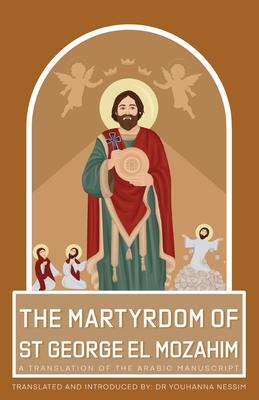"The Martyrdom of St George El Mozahim" offers an insight of the complex and nuanced relationship between Coptic Christians and Muslims under Arab rule during the 10th century. This martyrdom account comes from an invaluable primary source - a manuscript penned by the Coptic author Mīnā, recounting the compelling narrative of the Christian convert, George (Jirjis) Muzāḥim.
Jirjis, who was brought up by a Muslim father and a Christian Mother, after an encounter with his friends at a young age he chose to be baptised a Christian according to his mother's faith. This decision provoked anger by Muslim authority which resulted in a series of maltreatment, and persecution to say the least. Despite adversities, his steadfast faith remained unbroken, culminating in his martyrdom, widely believed to have take place in 978 AD.
Dr Younabba Nessim, translation and introduction unveil the manifold dimensions of Jirjis' life. The account brims with instances of divine intervention, fervent professions of Christian faith, and miracles attributed to Jirjis' relics post-mortem. As a testament to his legacy, multiple churches were erected in his honour.
Drawing from the rich narrative of the manuscript, this book presents an in-depth study of Coptic identity formation, the societal role of martyrdom, and the delineation of religious boundaries within the context of Coptic Orthodoxy.
This Martyrdom account translated and published for the first time to the English language, delves into the realm of early Arabic-language compositions by the Coptic Orthodox Church, offering readers a rare glimpse into the many martyrdom accounts from the medieval Muslim rule in Egypt.
